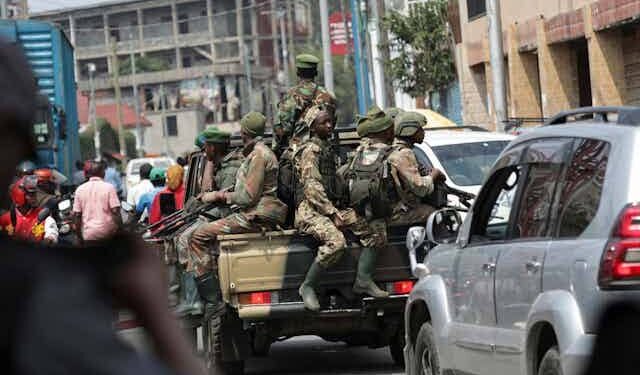The UN human rights office said it had received first-hand accounts indicating that at least 319 civilians were killed by M23 fighters within two weeks in July.
Most of the victims, including at least 48 women and 19 children, were local farmers camping in their fields during the planting season, according to OHCHR.
The spike in violence comes just weeks after two high-level peace initiatives appeared to offer a path forward.
Hopes for peace in the DRC had been shaken by a surge in brutal attacks on civilians by armed groups, including the Rwandan-backed M23 militia, in the country’s troubled eastern region.
Volker Türk, UN High Commissioner for Human Rights, condemned the “surge of deadly violence”.
“I am appalled by the attacks on civilians by the M23 and other armed groups in eastern DRC amid continued fighting, despite the ceasefire that was recently signed in Doha,” Mr Türk said. “All attacks against civilians must stop immediately and all those responsible must be held to account.”
The latest massacre marked one of the highest civilian death tolls documented since the M23.
M23 is a group largely composed of Congolese Tutsi fighters, established over 15 years ago.
On June 27, Rwanda and the DRC signed a bilateral peace agreement in Washington, followed by the so-called Doha Declaration. The peace agreement between the DRC Government and M23 rebel leaders, signed on July 19, committed both sides to a ceasefire and further negotiations.
However, humanitarian NGOs say little has changed on the ground.
“I urge the signatories and facilitators of both the Doha and Washington agreements to ensure that they rapidly translate into safety, security, and real progress for civilians,” Mr Türk said.
The growing insecurity is fuelling what humanitarians regard as one of the world’s most acute humanitarian crises.
According to UN figures, more than 7.8 million people are now internally displaced (IDPs) in eastern DRC, the highest figure on record.
UN added that 28 million people were facing food insecurity, including nearly four million at emergency levels.
In addition to the strain, more than 30,000 refugees from South Sudan have fled into Ituri province since April, escaping a wave of killings and active hostilities across Central Equatoria State.
The World Food Programme has warned that funding shortfalls may soon force it to suspend lifesaving assistance to hundreds of thousands, while health services are also collapsing under pressure.
In the first half of 2025, 33 attacks were recorded on health workers and facilities, a 276 per cent increase from the previous six months, according to the UN reproductive health agency, UNFPA.
NAN





































